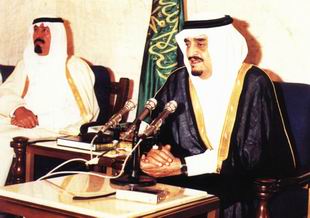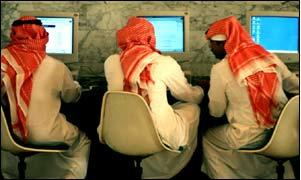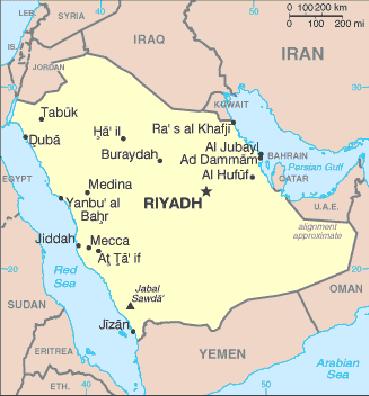 |
Home | Country Profile | Cultural Profile | Case Study | Campaign Analysis | Resources |
| Saudi Arabia : Friends of America |
 Home Home |
<<Country Profile>> | Cultural Profile |
| Political Background |
|
| The Royal Kingdom of Saudi Arabia could be characterized as an authoritarian state established under a monarchy. The King holds complete decision-making power. The country was established under a fundamentalist interpretation of Islam but the discovery of oil significantly shaped the state's future in the global market. Saudi Arabia has transformed itself from a relatively rural and nomadic country to one that is now urbanized with a growing middle-class of professionals. This group especially has put considerable pressure on the government to relax its social policies and allow citizens to have more political involvement. Religion is an extremely important factor of politics in Saudi Arabia. There is no separation of religion and State. In terms of foreign policy, Saudi has developed close relations with the United States and other Western allies. Islam is the basis of such policy, which has often created visible tension with its allies. From a public communication perspective all of these factors are viably important. Any communication plan must be religiously and culturally sensitive to the highly traditional and conservative social sphere. One must also consider the tremendous political power that Saudi exerts on the region because of its religious significance. It is an ideal target for communication plans that center around issues such as family, healthy, food, or business but not politics. |
  |
 |
Social Background |
The general population of Saudi Arabia is young however the older generations exert considerably more social influence because of religious principles. There is also a tremendous conglomeration of ethnic tribes in Saudi Arabia that are dispersed throughout the various provinces. Affiliation with a tribe constitutes a major function of the social stratosphere. It is invariably important because individuals operate within whatever tribe they are affiliated with. However, Islam helps to homogenize the entire social sphere as it is instituted in education et al. The official language is Arabic and the considerable foreign entities largely speak English. Literacy levels are also relatively high in Saudi Arabia and women in Saudi are largely underprivileged in their rights (only 7% of the workforce are women). From a public communication perspective one must consider the ethnic diversities of the country, especially if targeting specific markets. The issue of language is also important because Arabic is the official language and the spoken language and because the literacy rate is not considerably high a communication plan should focus less on printed media and more on audio or visual. |
| Economic Background | |
|
The Saudi Economy was historically based on agriculture because of its large nomadic population. Saudi Arabia was always a vital center for trade and commerce in the region and this was also propelled by the influx of merchants and religious pilgrims. The growth of the international trade association as a result of the European colonial expansion also benefited these merchants and attracted numerous families from various neighboring countries. The discovery of oil triggered changes in the economy allowing for the development of Saudi's transportation infrastructure. Oil also opened up new opportunities for other sectors to emerge especially in the private sphere. Saudi Arabia, as the world's largest oil supplier is a vital economic outlet for the Middle Eastern region and the world. It has close relations with most of the major international economic organizations such as the WTO and its economic policy is intrinsically linked to its foreign policy. From a public communication perspective Saudi's complex role in the global market place must be considered. |
 |